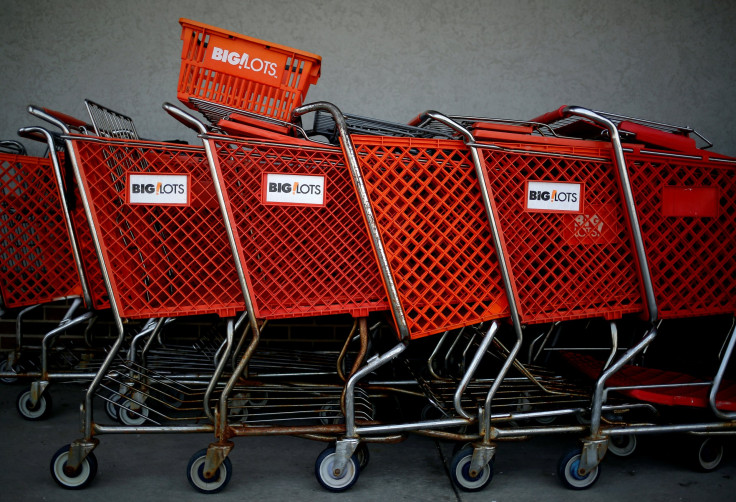Best Store Credit Cards: Want To Build Credit And Avoid High Interest Rates? Pay Your Balance Or Avoid These Retail Offers

If you’re thinking of signing up for a Big Lots credit card to cash in on its sign-up bonus, be sure to make your payment on time. The department store charges an interest rate nearly twice the national average for all credit cards, according to a study of store-brand card interest rates.
Big Lots, which charges 29.99 percent on store card purchases not paid off in six months, was followed by jewelry store Zales, whose cards have a 29.24 percent interest rate, and office goods supplier Staples, with 28.24 percent, according to CreditCards.com. The national average for all credit cards, including non-store brand, is just over 15 percent.
Asked what attracts consumers to cards with such sky-high interest rates, CreditCards.com industry analyst Matt Schulz told International Business Times that the ease with which buyers can sign up—compared to the process for signing up for a standard credit card at a bank—draws consumers who are at higher risk of missing payments, so the stores compensate for that risk by charging higher rates.
And those rates could go up. The study found that after the Federal Reserve hiked its federal funds rate target by 0.25 percent in December 2015, branded credit card interest rates rose by 0.41 percent. If the Fed decides to raise rates before the end of this year, as economists overwhelmingly believe it will, stores may raise their rates once more.
While the Credit Card Accountability, Responsibility and Disclosure Act of 2009 prevents credit card issuers from raising rates on existing balances within the first year of issuance, a series of Fed interest rate increases over the next year would likely cause rates to rise noticeably, as credit card interest rates tend to rise with the federal funds rate target.
With Americans’ credit card debt at $974.6 billion, multiple rate hikes could trigger a wave of delinquencies, especially among higher-risk store card holders, according to Schulz.
“Even though delinquencies have been low, that credit card balance has been increasing for years, and there will be a sort of tipping-point,” Schulz said, adding that, if the Fed were to raise rates by a full percentage point over the next year, card holders “would start to feel it.”
© Copyright IBTimes 2025. All rights reserved.






















